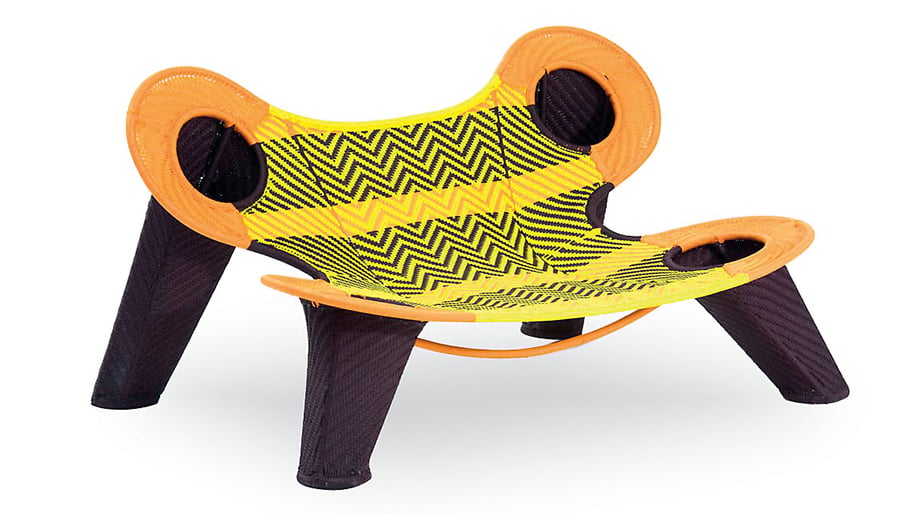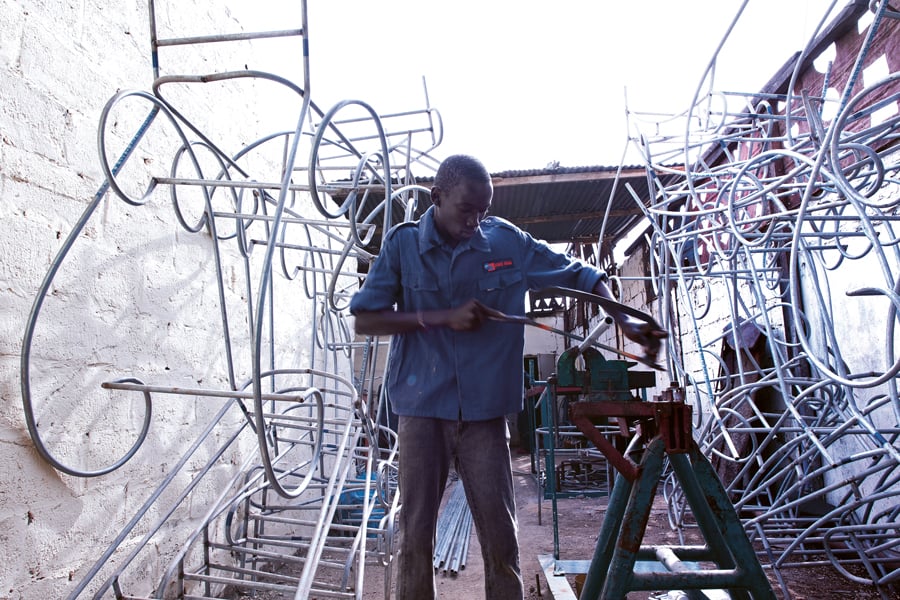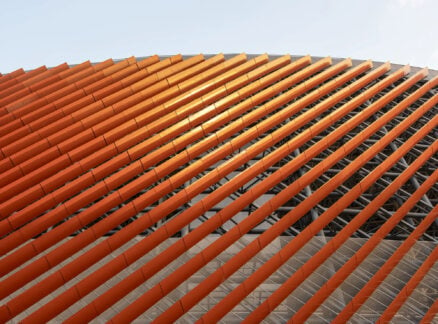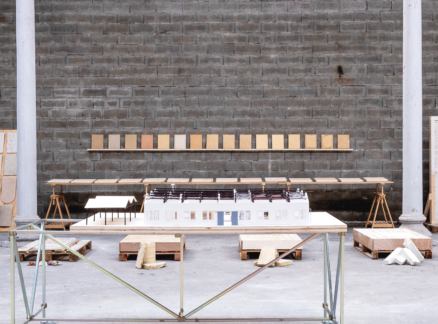
July 23, 2019
Design Cities 2019: Dakar, Senegal
The Dakar Next initiative hopes to change how design and artisanship are valued in Senegal.

“In Dakar, we are all designers,” says Bibi Seck, who divides his time between the Senegalese capital and New York. He is referring to Senegal’s informal design sector, dependent upon artisanal manufacturing. “If my mother needed a table,” Seck says, “she would call a woodcraft guy and make a basic sketch.” That scenario persists in contemporary Dakar, though professional design services are considered too expensive, and artisans are left vulnerable to exploitation by a market that favors cheap labor.
Seck, who has designed contract furniture for Herman Miller and Nucraft in the United States, is hoping to change all that with his latest project, a design lab called Dakar Next. For the past decade, he has been trying to engage with craftspeople in a fair way. Although the first armchair he designed for Moroso in 2009 retails for over $2,000, affordable products, like Seck’s $79 IKEA rocking chair, have hit the market as well. Through those projects, Seck has zeroed in on the one thing that must change if good design is to become ubiquitous in Senegal: labor practices.
With Dakar Next, “the artisans I work with make what I make,” he says. “We share the costs of materials; we split the profits.” Seck trains his partners to prioritize their own needs over the market’s exploitative forces: “I ask, ‘How much do you want to make?’ If you want to make $1,000 a month, you have to divide that amount by the number of working hours.” To understand how revolutionary that is, consider that even buyers or clients that are certified as “fair trade” by the World Fair Trade Organization are required only to pay artisans the minimum wage as defined by the local government—around $1,700 a year in Senegal.
You may also enjoy “Design Cities 2019: Jakarta, Indonesia.”
Would you like to comment on this article? Send your thoughts to: [email protected]
Recent Viewpoints
Viewpoints
Sustainability News Updates for Q2 2025









